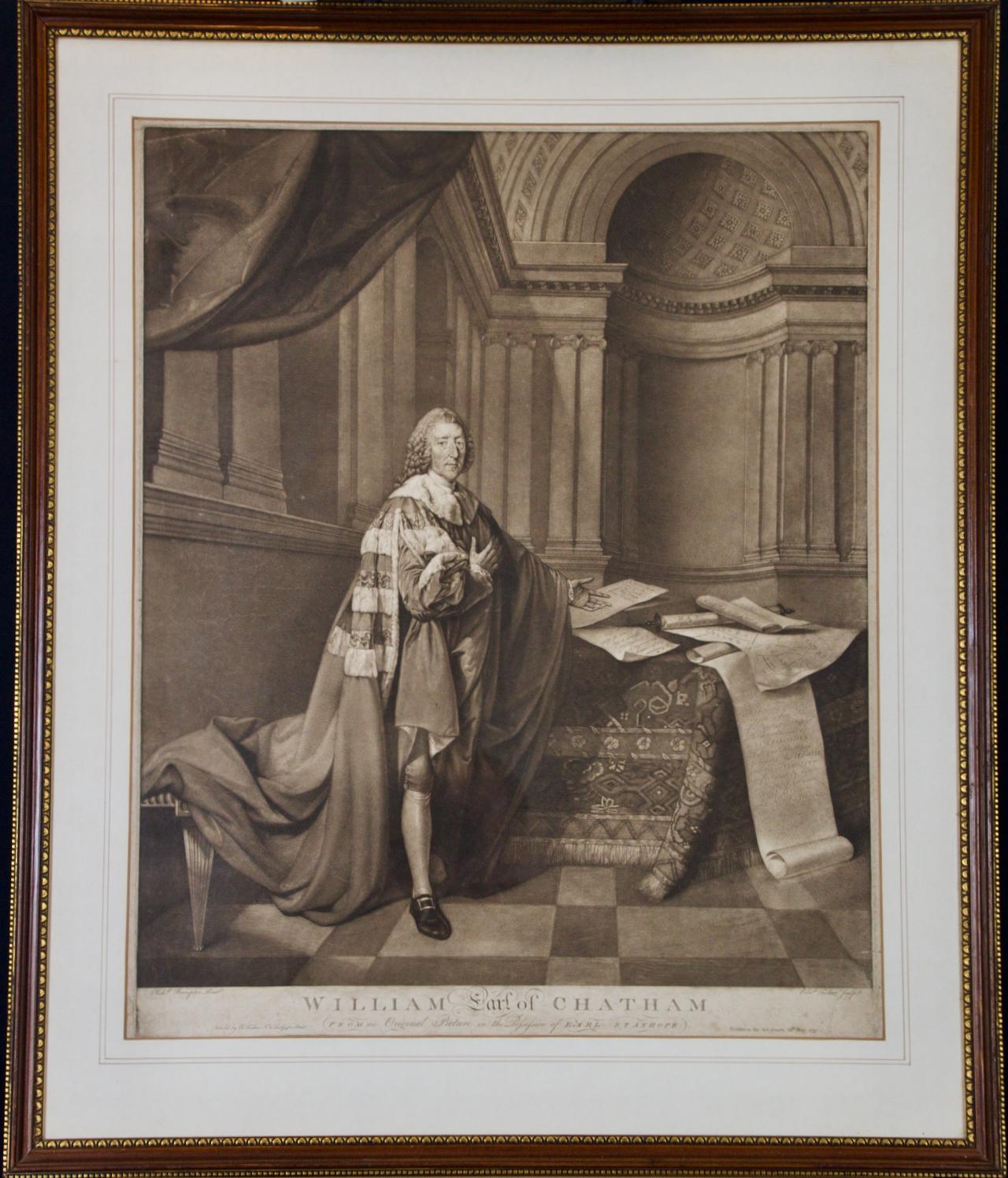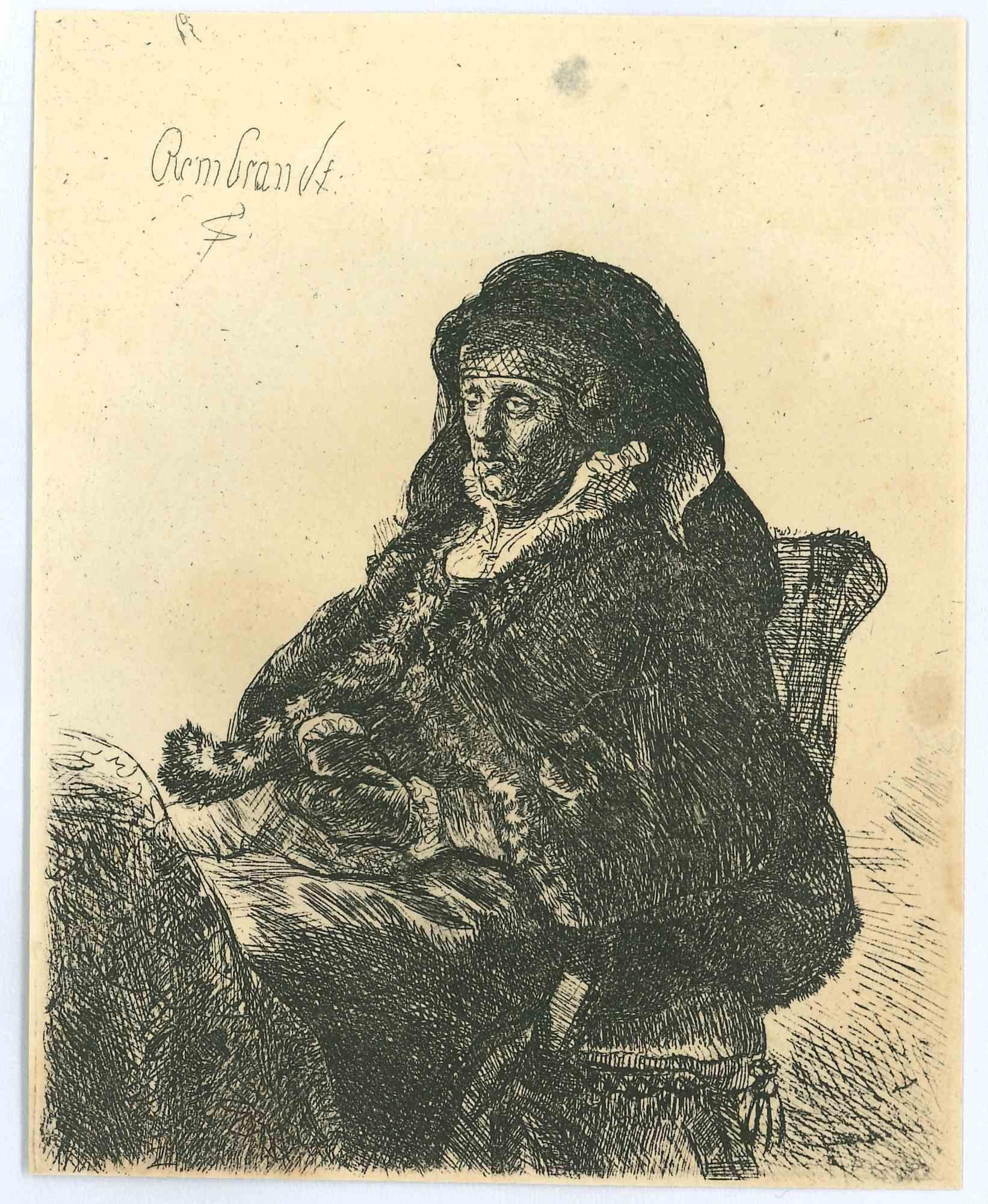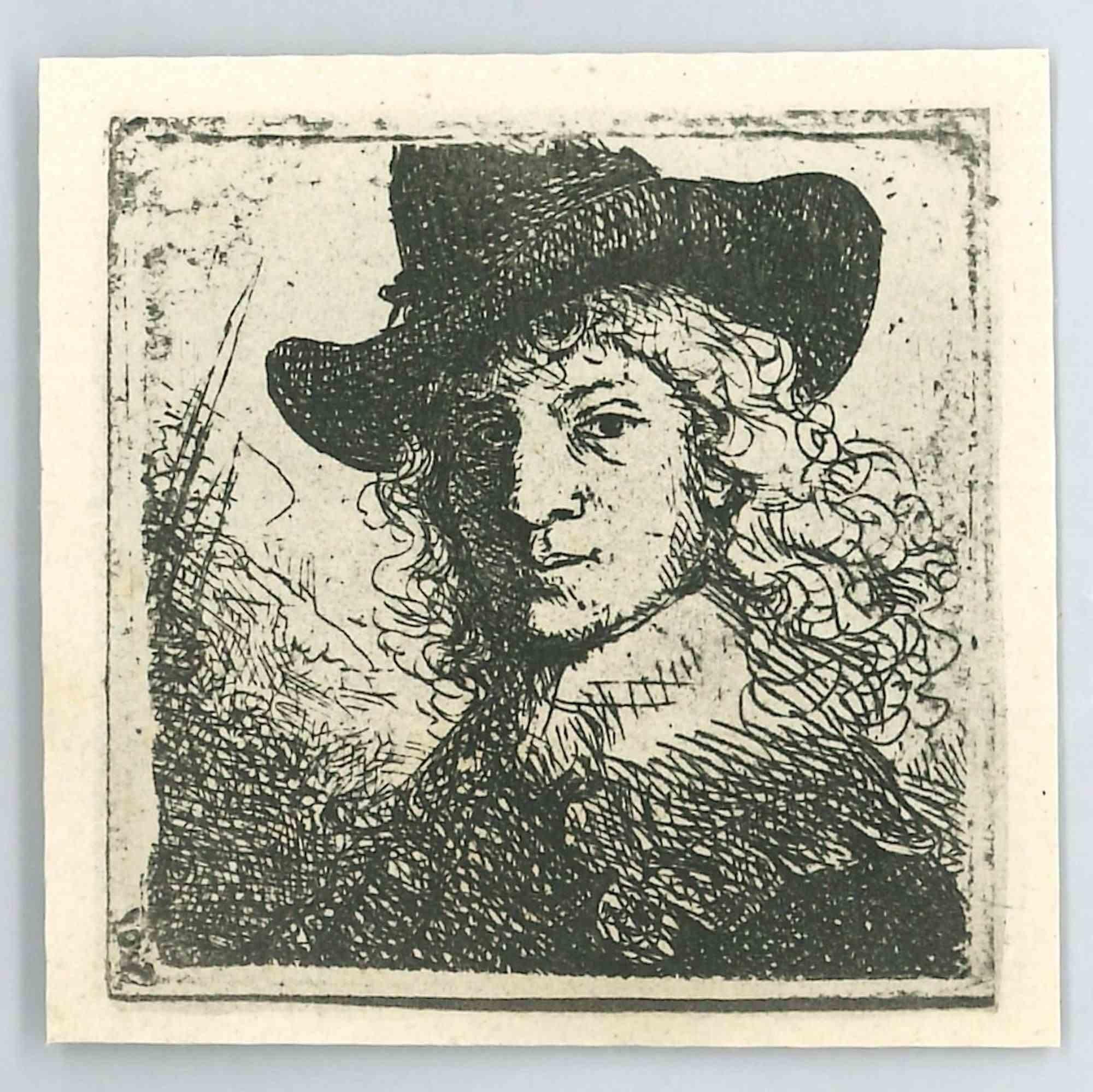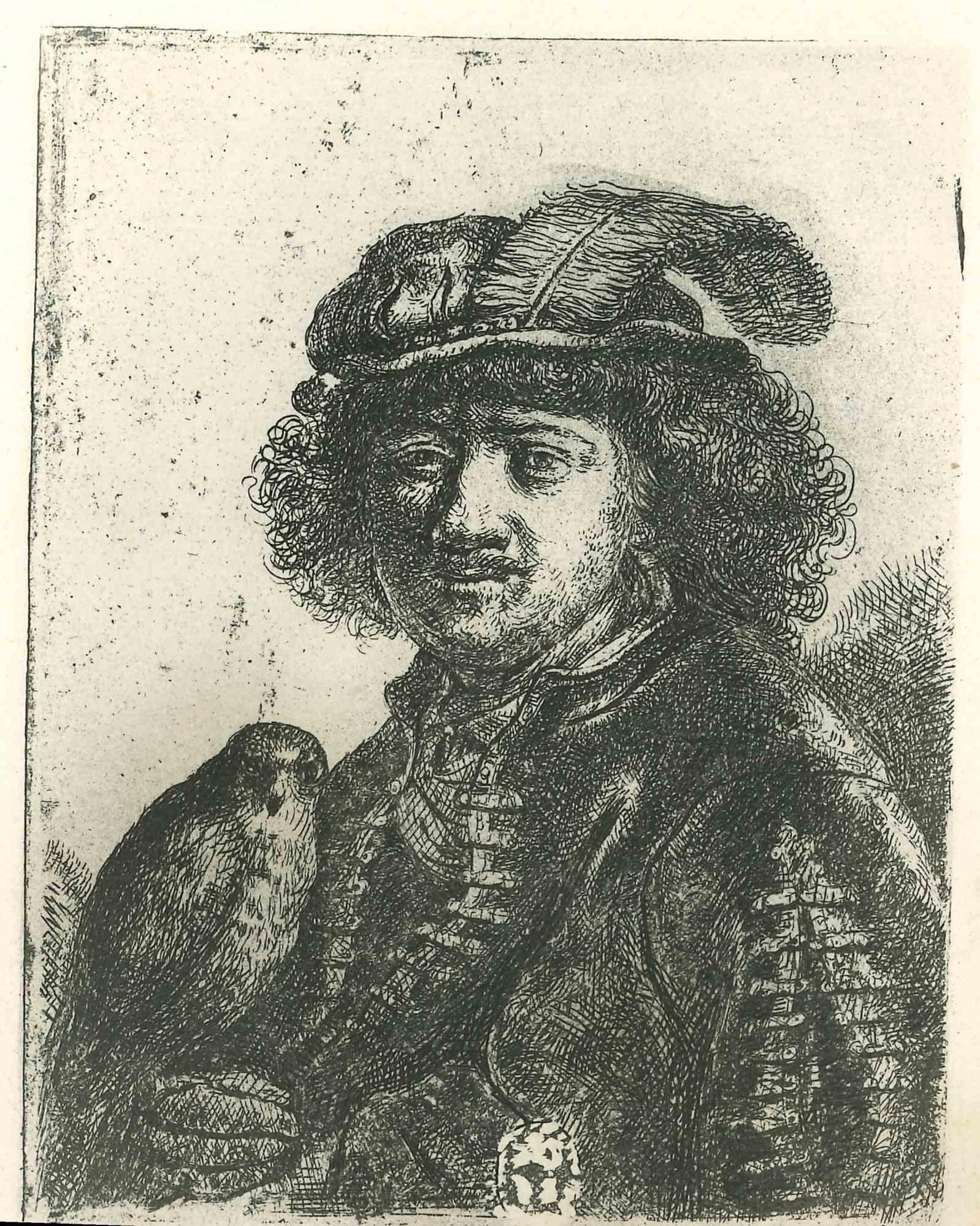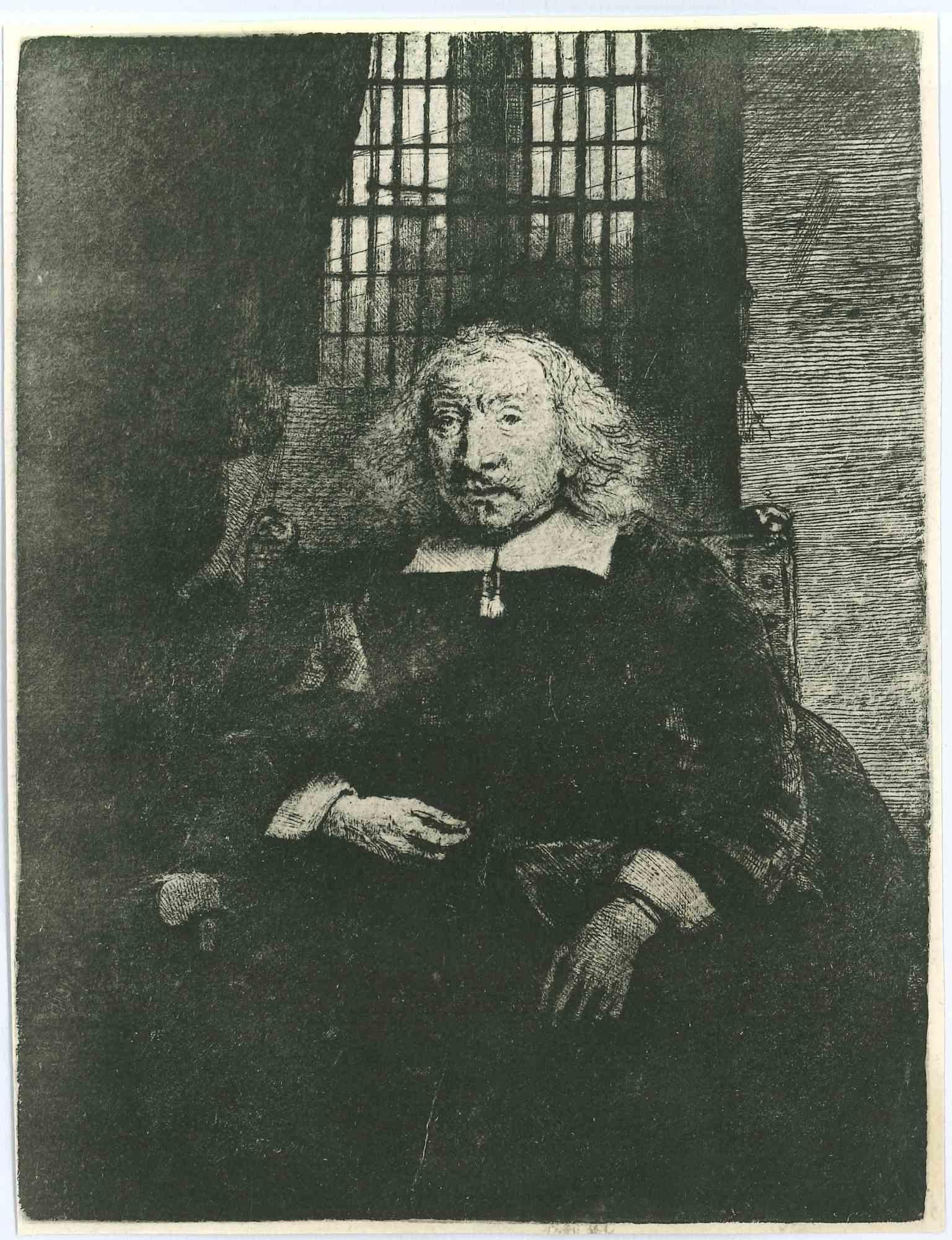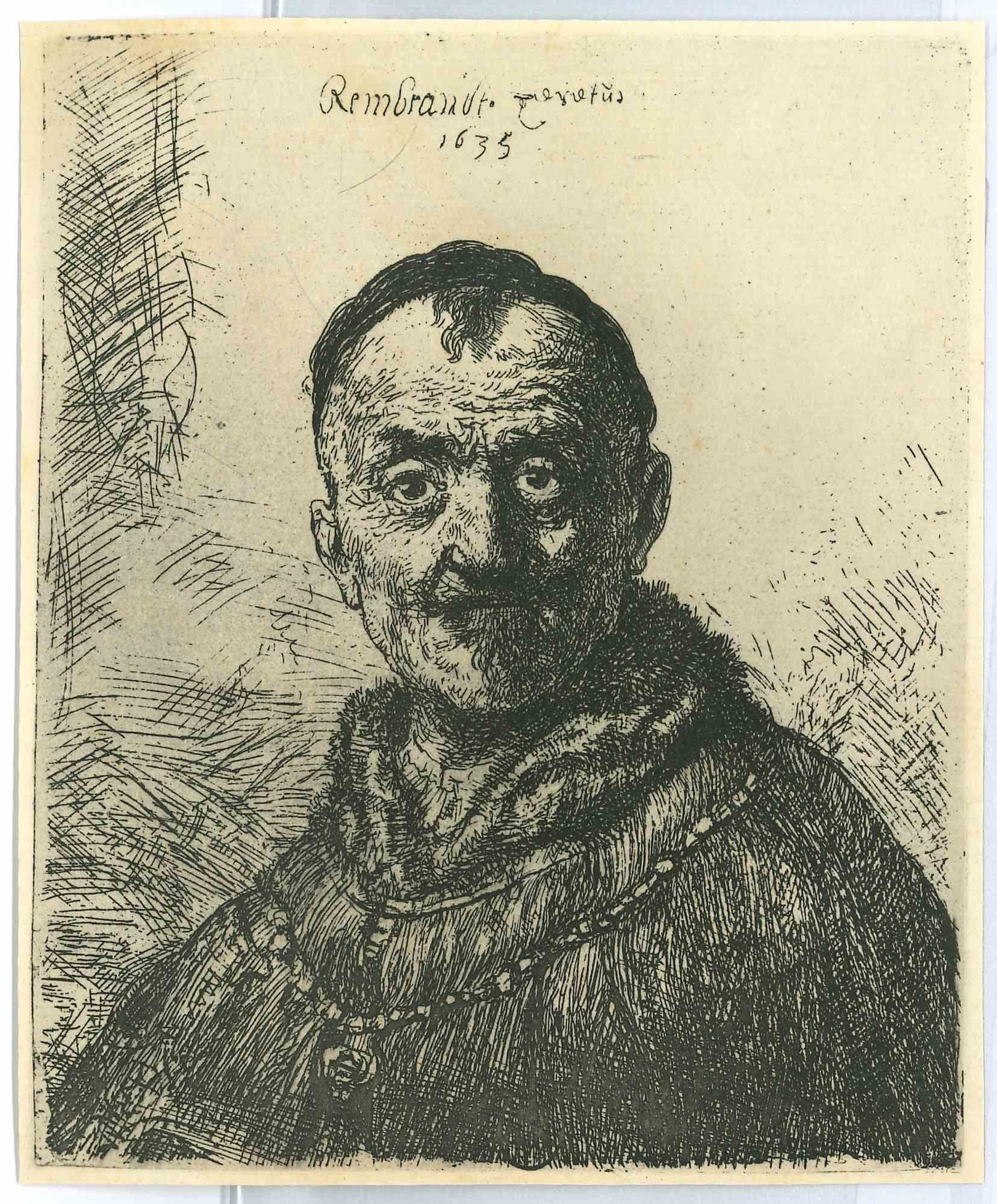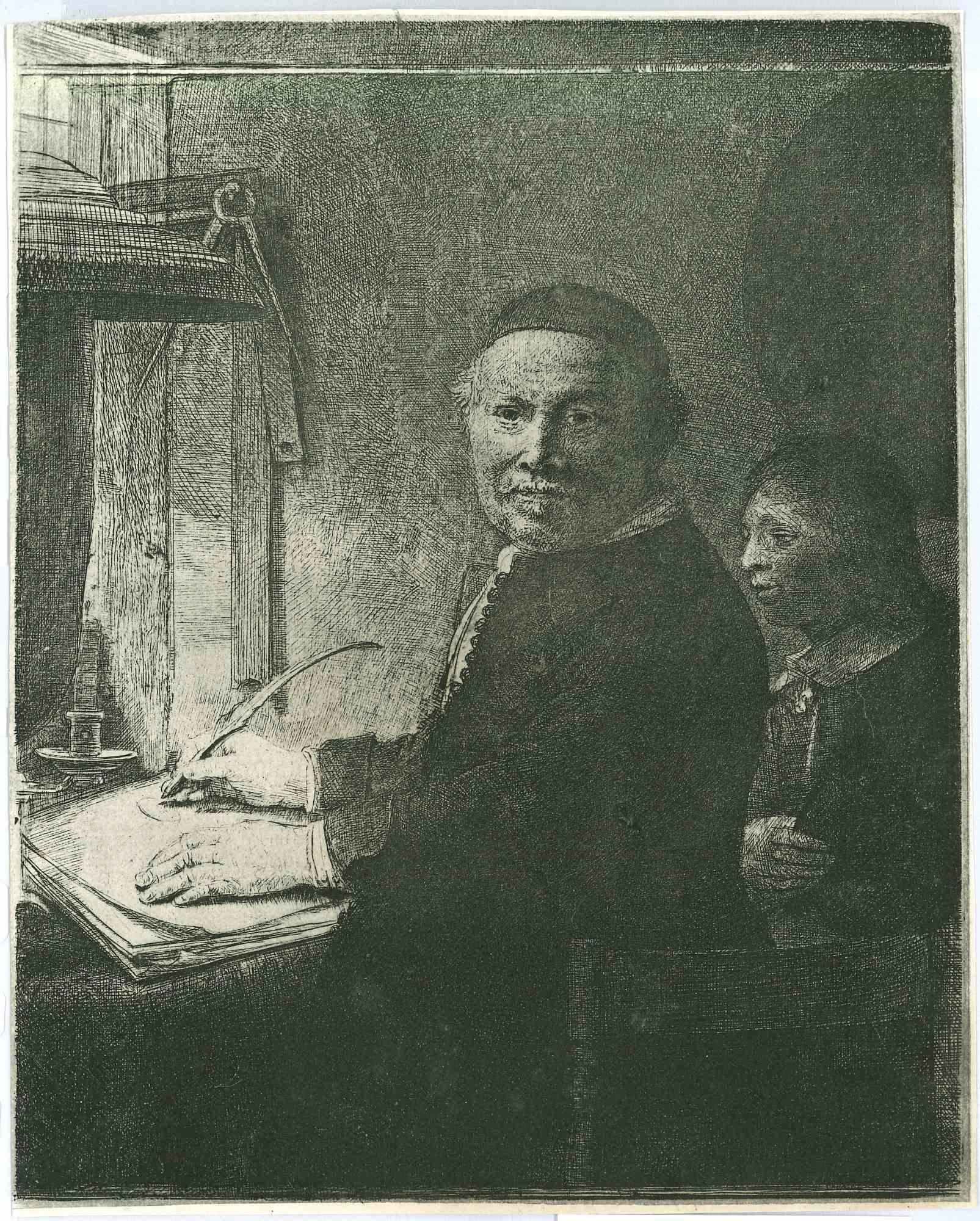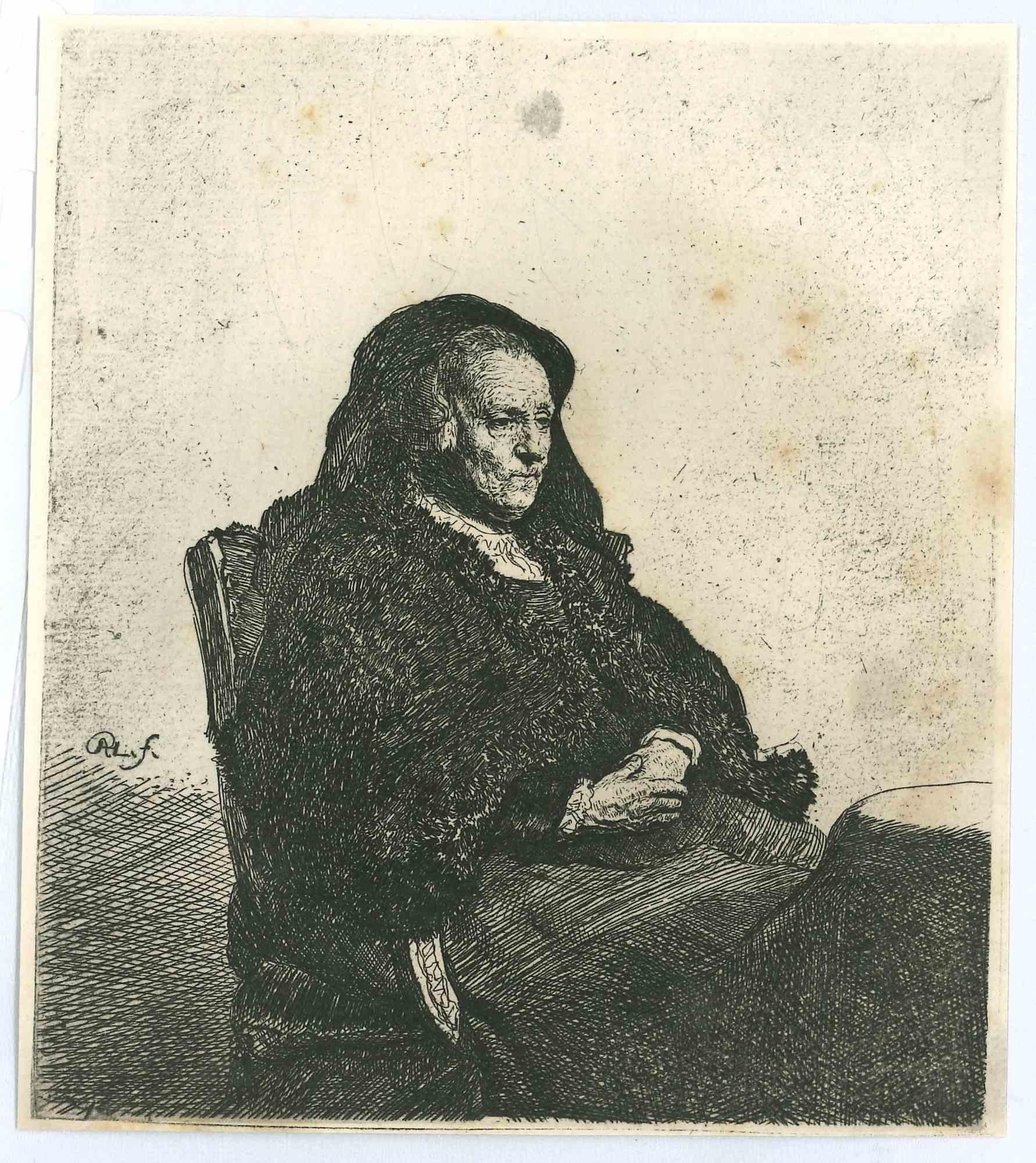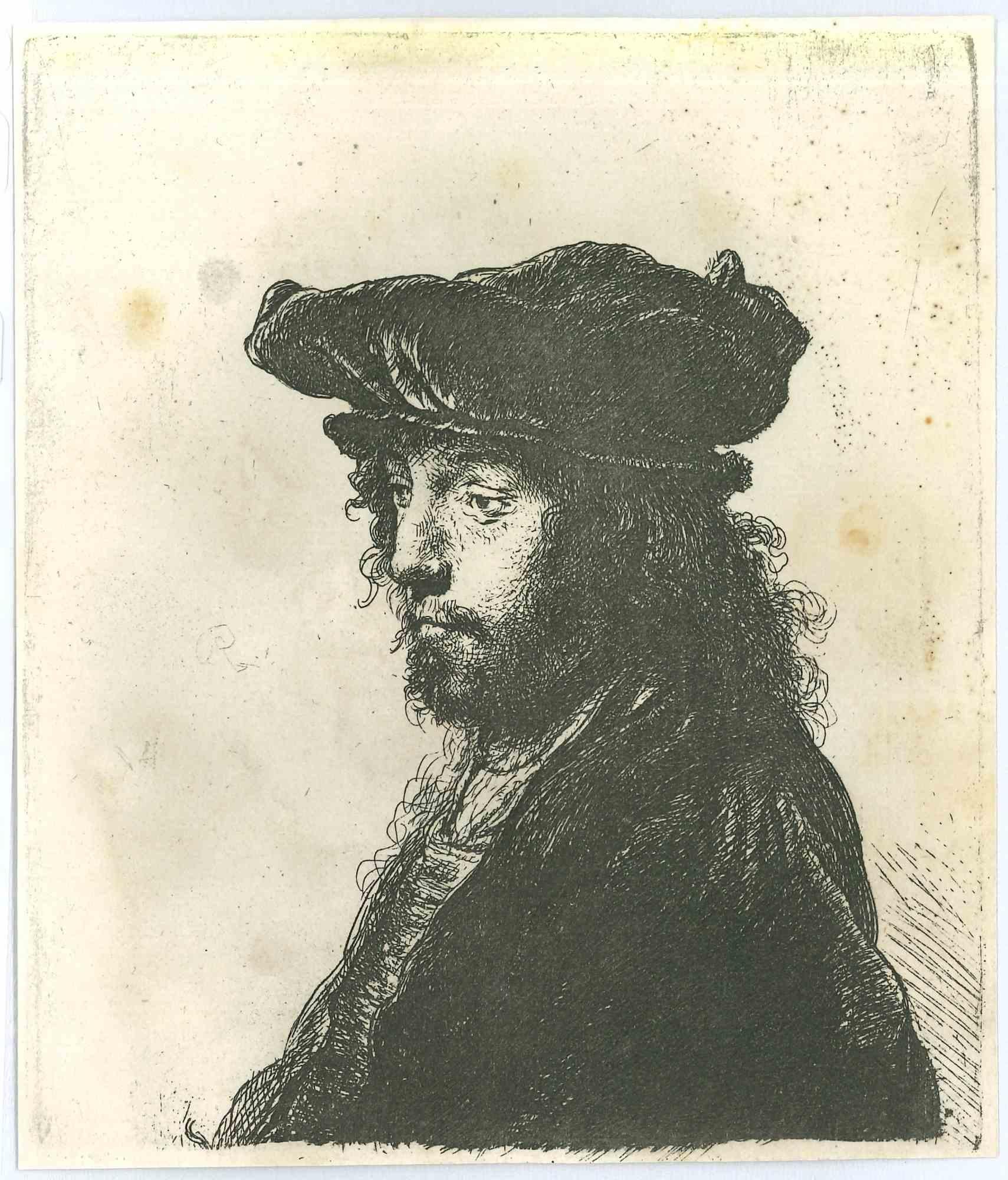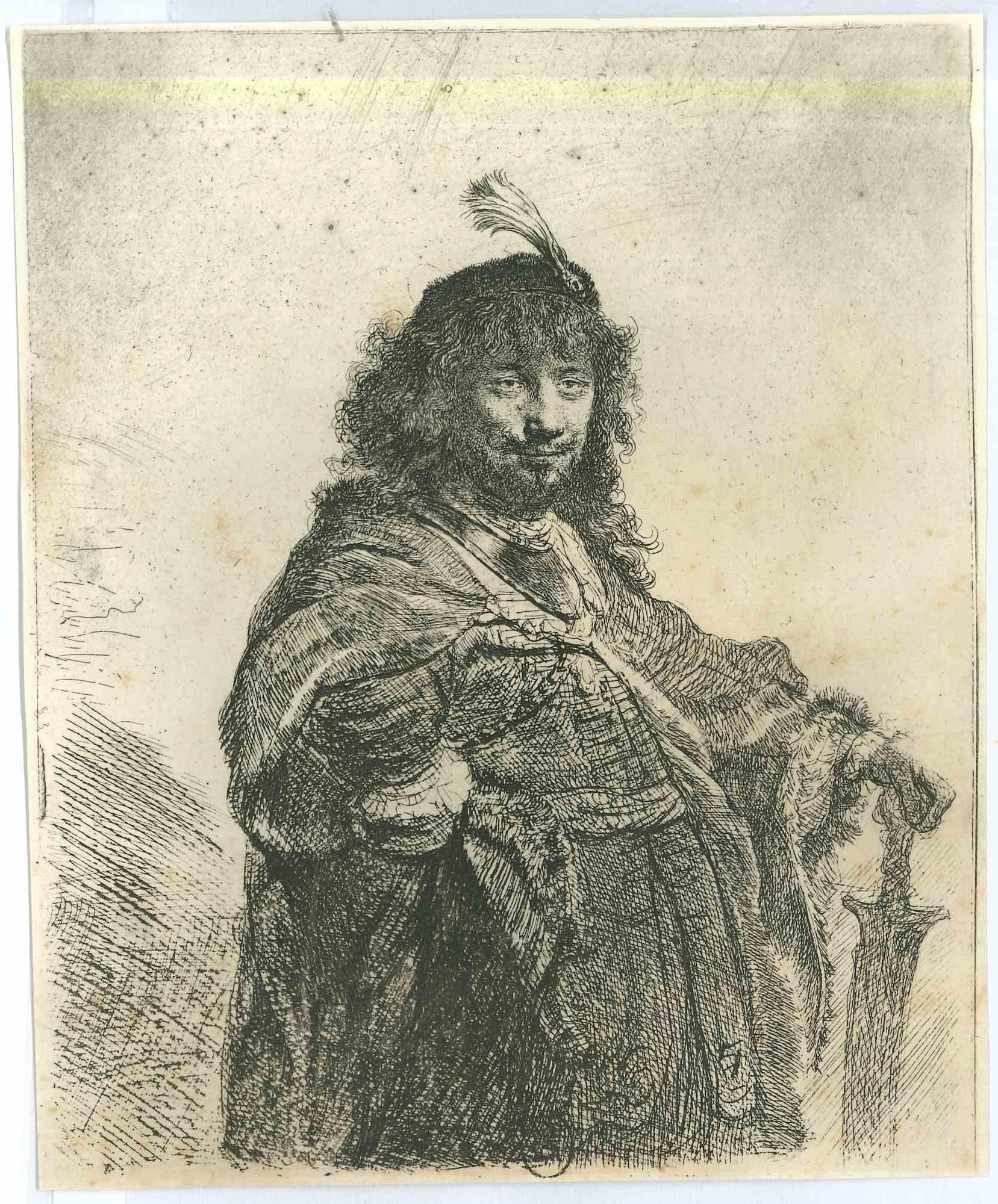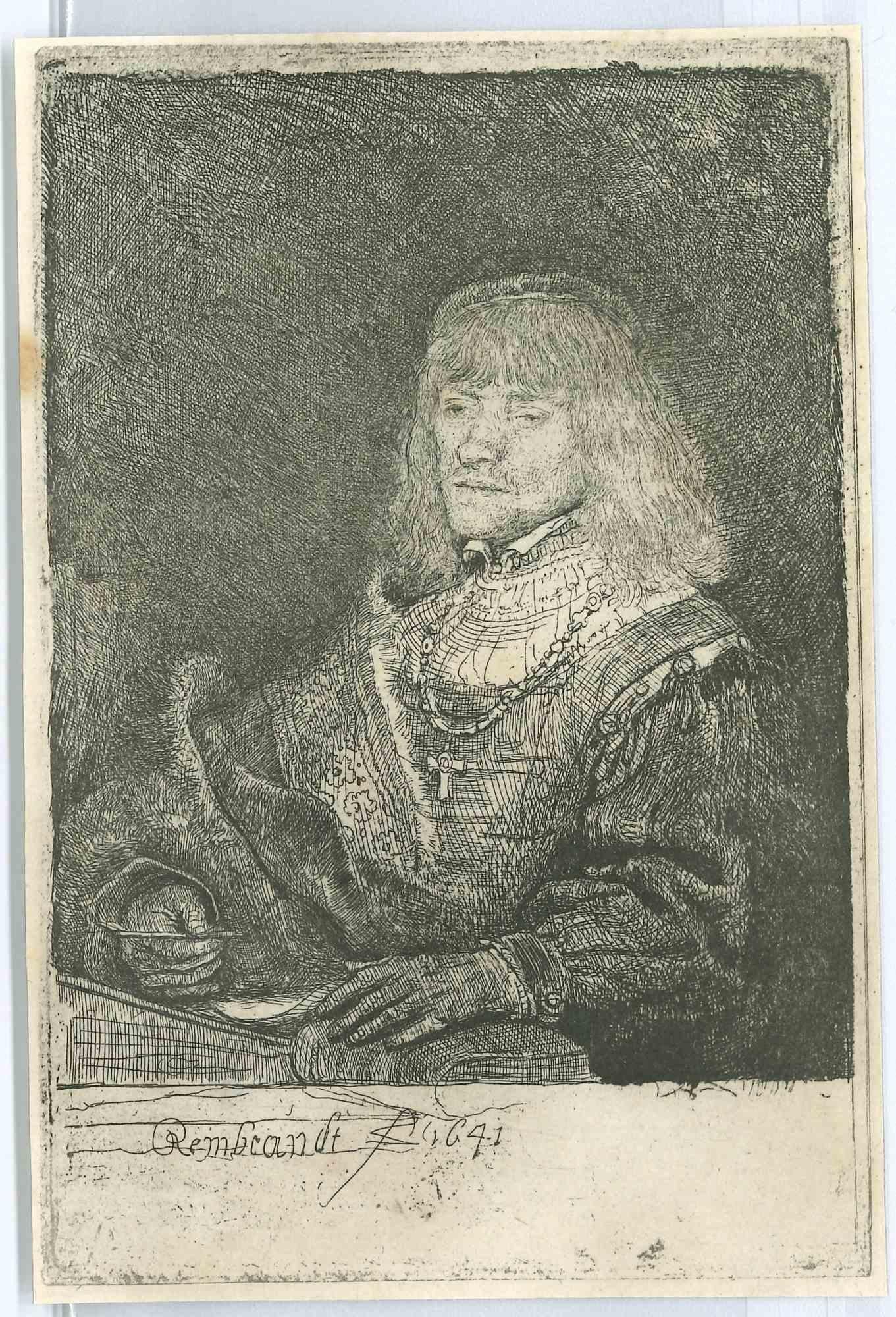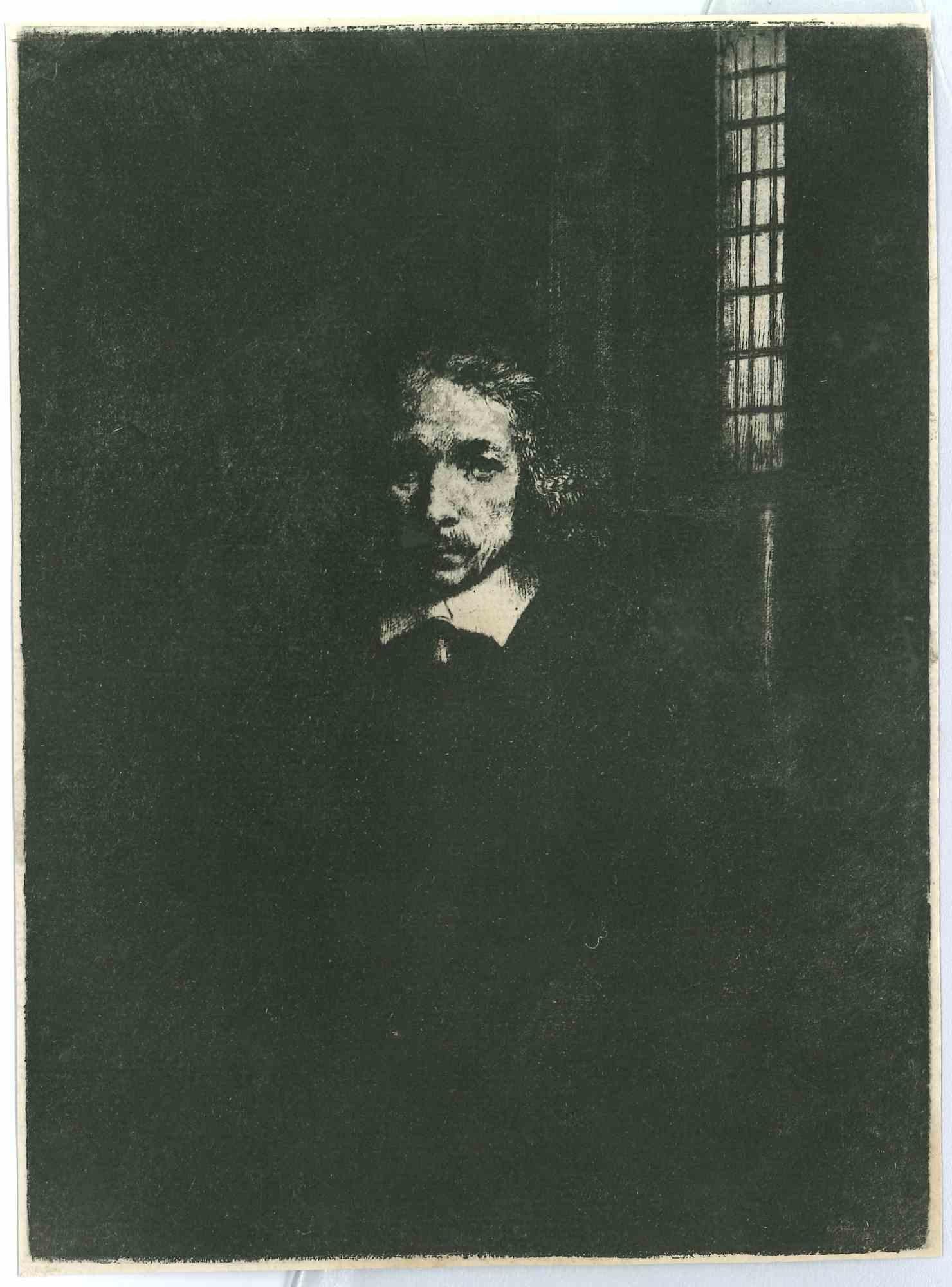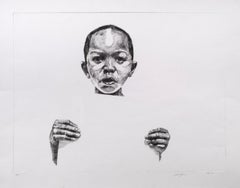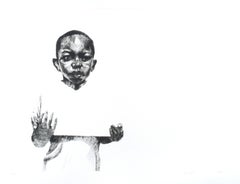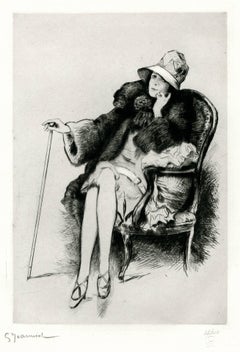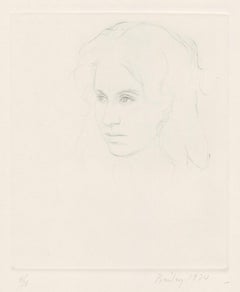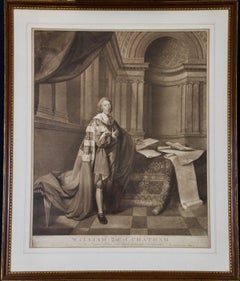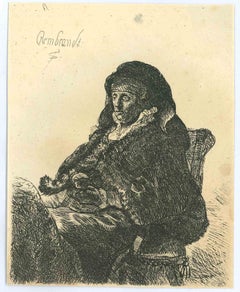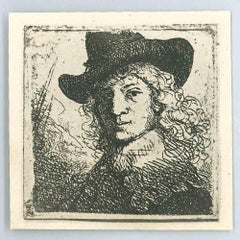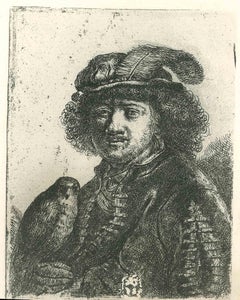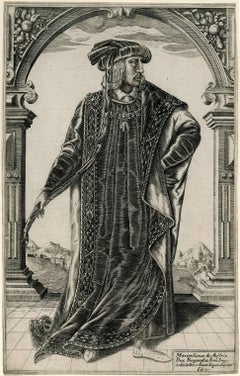
Maximillian I, Holy Roman Emperor
View Similar Items
Want more images or videos?
Request additional images or videos from the seller
1 of 6
William Rogers (b.1545)Maximillian I, Holy Roman Emperor1602
1602
About the Item
- Creator:William Rogers (b.1545) (1545 - 1604)
- Creation Year:1602
- Dimensions:Height: 10 in (25.4 cm)Width: 6.38 in (16.21 cm)
- Medium:
- Movement & Style:
- Period:1600-1609
- Condition:A fine impression, trimmed on or within the platemark.
- Gallery Location:Fairlawn, OH
- Reference Number:Seller: FA79801stDibs: LU14015018722
About the Seller
5.0
Recognized Seller
These prestigious sellers are industry leaders and represent the highest echelon for item quality and design.
Platinum Seller
Premium sellers with a 4.7+ rating and 24-hour response times
Established in 1978
1stDibs seller since 2013
784 sales on 1stDibs
Associations
International Fine Print Dealers Association
Authenticity Guarantee
In the unlikely event there’s an issue with an item’s authenticity, contact us within 1 year for a full refund. DetailsMoney-Back Guarantee
If your item is not as described, is damaged in transit, or does not arrive, contact us within 7 days for a full refund. Details24-Hour Cancellation
You have a 24-hour grace period in which to reconsider your purchase, with no questions asked.Vetted Professional Sellers
Our world-class sellers must adhere to strict standards for service and quality, maintaining the integrity of our listings.Price-Match Guarantee
If you find that a seller listed the same item for a lower price elsewhere, we’ll match it.Trusted Global Delivery
Our best-in-class carrier network provides specialized shipping options worldwide, including custom delivery.More From This Seller
View AllIf you're too cool, you lose.
By Darius Steward
Located in Fairlawn, OH
Signed, dated and numbered in pencil
Printer: Rebekah Wilhelm, Zygote Press, Cleveland
Created at Zygote Press, Cleveland, 2015, while the artist was an Artist in Residence.
Exhib...
Category
2010s Contemporary Figurative Prints
Materials
Drypoint
Darius II
By Darius Steward
Located in Fairlawn, OH
Signed in pencil lower right
Edition: 3 impressions
Signed, dated and annotated “1 of 3”
Exhibited: Zygote Press, Cleveland, 2016
Tregoning & Co. 2017
Category
2010s Contemporary Figurative Prints
Materials
Drypoint
Femme Assie
By Pierre Georges Jeanniot
Located in Fairlawn, OH
Femme assise
Etching with drypoint, c. 1920
Signed in pencil lower left
publisher stamp lower right
Edition: 100 (88/100)
Condition: Excellent
Image size: 11 3/4 x 8 1/4 inches
Cou...
Category
1910s Portrait Prints
Materials
Drypoint, Etching
Untitled (Portrait)
By William H. Bailey
Located in Fairlawn, OH
Untitled (Portrait)
Drypoint printed in blue-black graphite mixed with silver, 1974
Signed and dated lower ight (see photo)
From: Series entitled Six Drypoints
Edition: 23 (4/23)
Numbered lower left (see photo)
Print Shop: Crown Point Press
Printer: Jeannie Fine
Publisher: Parasol Press, New York
Note: A portfolio is in the collection of the National Gallery, Australia, Fine Arts Museums of San Francisco- de Young/Legion of Honor, Davis Museum at Wellesley College and the Yale University Art Gallery.
Condition: Excellent
Image/Plate size: 6 3/8 x 5 3/8 inches
Sheet size: 24 x 20 inches
From a portfolio of six drypoints, printed with unqiue combination of blue-black graphite shavings combined with silver to create the appearence of an original drawing. I know of no other artist to use a similar printing technique.
William Bailey studied art at the University of Kansas, Yale University and Yale School of Art where he studied with Josef Albers receiving his MFA in 1957.
Mr. Bailey’s first exhibition in New York was at Robert Schoelkopf Gallery in 1968, where he showed regularly until its closing in 1990. During the 90’s he exhibited at the Andre Emmerich Gallery and on its closing, exhibited at the Robert Miller Gallery. In 2004 Bailey moved to the Betty Cuningham Gallery where his most recent exhibition was held from April 30 - June 11, 2016.
Mr. Bailey’s work has been exhibited extensively in both America and Europe. He is represented in the collections of The Whitney Museum of American Art, The Museum of Modern Art, the Pennsylvania Academy of Fine Arts, and the Hirschhorn Museum and Sculpture Garden, among others. He was awarded a Guggenheim Fellowship in painting in 1965. Mr. Bailey was elected to The National Academy of Design in 1983 and to The American Academy of Arts and Letters in 1986.
Mr. Bailey taught at The Yale School of Art from 1958 to 1962 and from 1969 to 1995. He has also taught at The Cooper Union, University of Pennsylvania and Indiana University. He maintains studios in New Haven and in Umbertide, Italy.
Courtesy Betty Cunningham Gallery
Tribute to William Bailey
THE NEW YORK TIMES
William Bailey, whose pristine, idealized still lifes and female nudes made him one of the leading figures in the return of figurative art in the 1980s, died on April 13 at his home in Branford, Conn. He was 89.
His death was confirmed by his daughter, Alix Bailey.
Beyond his painting, Mr. Bailey influenced generations of students in his many years as a teacher at the Yale School of Art.
In some of his best-known work, Mr. Bailey arranged simple objects — the eggs, bowls, bottles and vases that he once called “my repertory company” — along a severe horizontal shelf, or on a plain table, swathing them in a breathless, deceptively serene atmosphere heavy with mystery.
William Bailey, Modernist Figurative Painter, Dies at 89
He swathed his nudes and still lifes of eggs, vases, bottles and bowls in a breathless, deceptively serene atmosphere heavy with mystery.
The painter William Bailey in 2009. He was never given a career survey in a major museum, but his influence, particulary on students at Yale, was deep.
Ford Bailey
By William Grimes for the New York Times
April 18, 2020
William Bailey, whose pristine, idealized still lifes and female nudes made him one of the leading figures in the return of figurative art in the 1980s, died on April 13 at his home in Branford, Conn. He was 89.
His death was confirmed by his daughter, Alix Bailey.
Beyond his painting, Mr. Bailey influenced generations of students in his many years as a teacher at the Yale School of Art.
In some of his best-known work, Mr. Bailey arranged simple objects — the eggs, bowls, bottles and vases that he once called “my repertory company” — along a severe horizontal shelf, or on a plain table, swathing them in a breathless, deceptively serene atmosphere heavy with mystery.
His muted ochres, grays and powdery blues conjured up a still, timeless world inhabited by Platonic forms, recognizable but uncanny, in part because he painted from imagination rather than life.
“They are at once vividly real and objects in dream, and it is the poetry of this double life that elevates all this humble crockery to the realm of pictorial romance,” Hilton Kramer wrote in The New York Times in 1979.
Mr. Bailey’s female figures, some clothed in a simple shift or robe and others partly or entirely nude, are disconcertingly impassive, implacable and unreadable, fleshly presences breathing an otherworldly air.
The critic Mark Stevens, writing in Newsweek in 1982, credited Mr. Bailey with helping to “restore representational art to a position of consequence in modern painting.”
But his version of representation was entirely idiosyncratic, seemingly traditional but in fact “a modernism so contrarian,” the artist Alexi Worth wrote in a catalog essay for the
William Harrison Bailey...
Category
1970s Realist Portrait Prints
Materials
Drypoint
Surrealist Composition with Bird in Profile
By Nahum Tschacbasov
Located in Fairlawn, OH
Engraving, aquatint and mixed intaglio
Signed, dated and annotated "AP"
References And Exhibitions:
Tschacbasov was a Russian/Amiercan artist who was widely exhibited and collecte...
Category
1940s Surrealist Portrait Prints
Materials
Engraving, Aquatint, Intaglio
Woman's Head - Woman's Head in Profile (left) (Havard)
By Elie Nadelman
Located in Fairlawn, OH
Woman's Head - Woman's Head in Profile (left) (Havard)
Drypoint, 1920
Unsigned (as issued)
From: The Drypoints of Elie Nadelman, 21 unpublished prints by the sculptor, proof from th...
Category
1920s American Modern Portrait Prints
Materials
Drypoint
You May Also Like
Portrait of William Pitt, Earl of Chatham: Rare Framed Mezzotint after Brompton
By Edward Fisher
Located in Alamo, CA
This is a large framed very rare hand-colored copperplate mezzotint engraved portrait of William Pitt, the Elder, 1st Earl of Chatham by Edward Fisher, published in London in 1779 after a painting by Richard Brompton. Pitt is depicted attired in a flowing regal appearing cape, standing in an ornate room with his left hand outstretched over a serious of manuscripts and scrolls that are laying on a table or desk to his left. The table is covered by a beautiful oriental carpet. The manuscripts include the Magna Carta, a map of the colonies, including Long Island and Staten Island, and papers entitled "A Plan for the Reconciliation between Great Britain and the Colonies", "A Motion Made in 1775 for the Recall of Troops from Boston", "A Provisional Act for Settling the Troubles in America Offered to the House of Lords in 1775", and "It is doing Nothing to repeal a few Scraps of Paper or Pieces of Parchment called Acts of Parliament. But our Business is to repeal the Ill-Will and the Animosity unfortunately now subsisting between Great Britain and North America". This engraving is held by the British Museum and the British Royal Collection Trust.
This large framed mezzotint engraving is presented in a brown wood frame with gold-colored beaded inner and outer trim, and a cream-colored French mat. The frame measures 31.63" high by 26.63" wide by 0.75" deep. There are three short tears along the right edge and mild creasing in the left upper, left lower and right lower corners. It is otherwise in very good condition.
William Pitt (1708-1778) was a member of the British parliament from 1735 to 1761 and prime minister from 1766 to 1768. Pitt was an advocate for the American colonies leading up to the War of Independence. He called for an amiable relationship between Great Britain and the colonies and opposed the Stamp Act and military action in America. He advocated for a withdrawal of English troops from Boston in 1775 and the settling of troubles in America, as two of his manuscripts on the table outline. Pitt's colleague, Lord Shelburne (later the Marquess of Lansdowne) shared his sympathies and after Pitt's death, signed a peace treaty with the United States in 1782.
The American city of Pittsburgh, Pennsylvania is named for William Pitt, the Elder. The name originated when the conflict between the British and French over territorial claims in the Northeast were settled in 1758. General John Forbes and his British army, supported by the American colonial troops, expelled the French from Fort Duquesne (which had been constructed by the French in 1754). Forbes re-named the site for William Pitt the Elder, who at the time was a British statesman. The earliest known reference to the new name, Pittsburgh, is in a letter sent from General John Forbes to Pitt, dated November 27, 1758. Pitt's son, William Pitt, the Younger, like his father, also served as British Prime Minister.
Edward Fisher (1730-1785) was born in Ireland in 1730. He was originally a hatter, but learned engraving in London. He became a member of the Incorporated Society of Artists in 1766, and exhibited there fourteen times between 1761 and 1776. He engraved more than sixty portraits. In addition to this portrait of William Pitt, Earl of Chatham, after Richard Brompton he engraved several portraits after Brompton, including George, Earl of Albemarle, as well as engraved portraits after paintings by Joshua Reynolds, including the Shakespearean actor David Garrick, Hugh, Earl of Northumberland, and Elizabeth, Countess of Northumberland and Laurence Sterne, and Hope Nursing Love, as well as Robert Brown, after Mason Chamberlin, Colley Cibber, after Jean-Baptiste van Loo, Christian VII of Denmark, after Nathaniel Dance, Simon, Earl Harcourt, after Hunter, Roger Long, after Benjamin Wilson...
Category
Late 18th Century Old Masters Portrait Prints
Materials
Mezzotint
Portrait of Rembrandt's Mother - Engraving after Rembrandt - 19th century
By Charles Amand Durand
Located in Roma, IT
Portrait of Rembrandt's Mother is an engraving on ivory-colored paper realized by Charles Amand Durand after an etching by Rembrandt. This wonderful piece of art belongs to a late ed...
Category
19th Century Old Masters Figurative Prints
Materials
Engraving
Portrait Of Jan Six - Engraving after Rembrandt - 19th Century
By Charles Amand Durand
Located in Roma, IT
Portrait Of Jan Six is an engraving on ivory-colored paper realized by Charles Amand Durand after an etching by Rembrandt dated 1630. This wonderful piece of a...
Category
19th Century Old Masters Figurative Prints
Materials
Engraving
Man With a Hawk - Engraving after Rembrandt - 19th Century
By Charles Amand Durand
Located in Roma, IT
Man With a Hawk is an engraving on ivory-colored paper realized after an etching by Rembrandt dated 1623-1647. This wonderful piece of art belongs to a late edition of the 19th centu...
Category
19th Century Old Masters Portrait Prints
Materials
Engraving
Thomas Jacobsz Haringh - Engraving after Rembrandt - 19th Century
By Charles Amand Durand
Located in Roma, IT
Thomas Jacobsz Haringh is an engraving on ivory-colored paper realized by Charles Amand Durand after an etching by Rembrandt dated 1855 ca. This wonderful piece of art belongs to an...
Category
19th Century Old Masters Figurative Prints
Materials
Engraving
The First Oriental Head - Engraving after Rembrandt - 19th Century
By Charles Amand Durand
Located in Roma, IT
The First Oriental Head is an engraving on ivory-colored paper realized by Charles Amand Durand after an etching by Rembrandt dated 1635. This wonderful piece of art belongs to an ed...
Category
19th Century Old Masters Figurative Prints
Materials
Engraving
Recently Viewed
View AllMore Ways To Browse
Coronation Plates
Henry Swiss Watch
William The Conqueror
Antique Rogers Silver
Russian Imperial Plates
English Regency Portrait
Regency Watch
Emperor Francis
Antique Window Guard
Antique Russian Watches
Dynasty Watch
Depose Italy
Queen Anne Silver Plated
Spanish Armada
Margaret Pope
Swiss Army Watch
Watches Depose
Coronation Silver Plate
